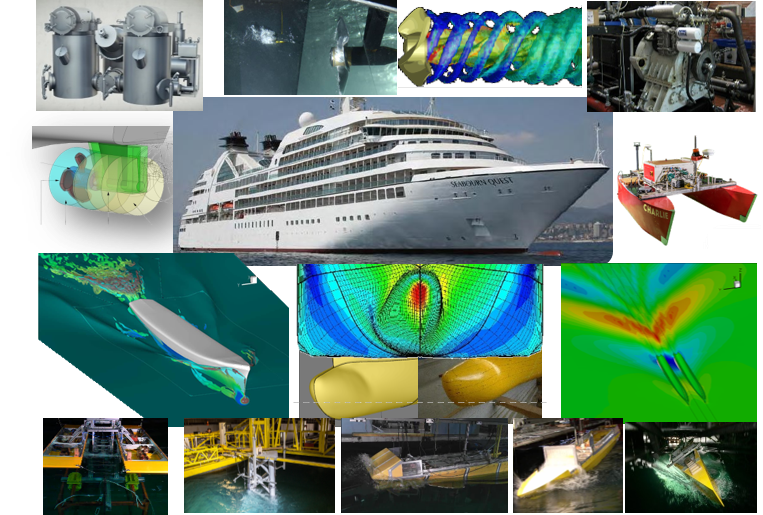Objective: The AP “Marine Technologies” conducts fundamental and applied research as well as technological developments for a sustainable exploitation of the Ocean resources and for improving operations at sea including efficient, clean and safe transportation as a critical issue. The reference macro-areas are: (i) “Green transportation,” (ii) “Smart, Safe and Secure operations at sea,” (iii) “Advanced ship design, construction and performance improvement” and (iv) “Automation and connectivity”.
Approach: The multi-disciplinary nature of the research challenges in the field of the green, smart, safe and secure exploitation of seas involve many branches of the engineering, such as materials, structures, hydrodynamics, hydroacoustics, electronics and automation, informatics, and, thus, imply the AP to cluster skills and research infrastructures from different Institutes: the Institute of Marine Engineering (INM) with competences in the area of naval architecture and marine engineering, the Institute of Information Science and Technologies (ISTI) operating in the field of computer science, the Institute for Research on Combustion (IRC) and the Institute for Research on Engines (IM) active in the key chemical and physical processes underlying energy conversion, the Institute for high performance computing and networking (ICAR) operating in the area of intelligent systems with complex functionality and high performance computing and the Advanced Energy Technology Institute (ITAE) active in developing innovative energy processes and technologies.
Scientific Impact/Results: The research studies and the technological developments within the present AP have an impact at scientific, industrial, social and political levels. Scientific contributions are addressed to: i) the reduction of the environmental impact of marine vehicles, ii) the improvement of the energy efficiency in the maritime transportation, iii) the design and performance enhancement via high fidelity mathematical models and experimental techniques, iv) the development of autonomous vehicles as well as smart and interconnected systems capable to perform self-diagnostics and intelligent maintenance cycles.

Download:


